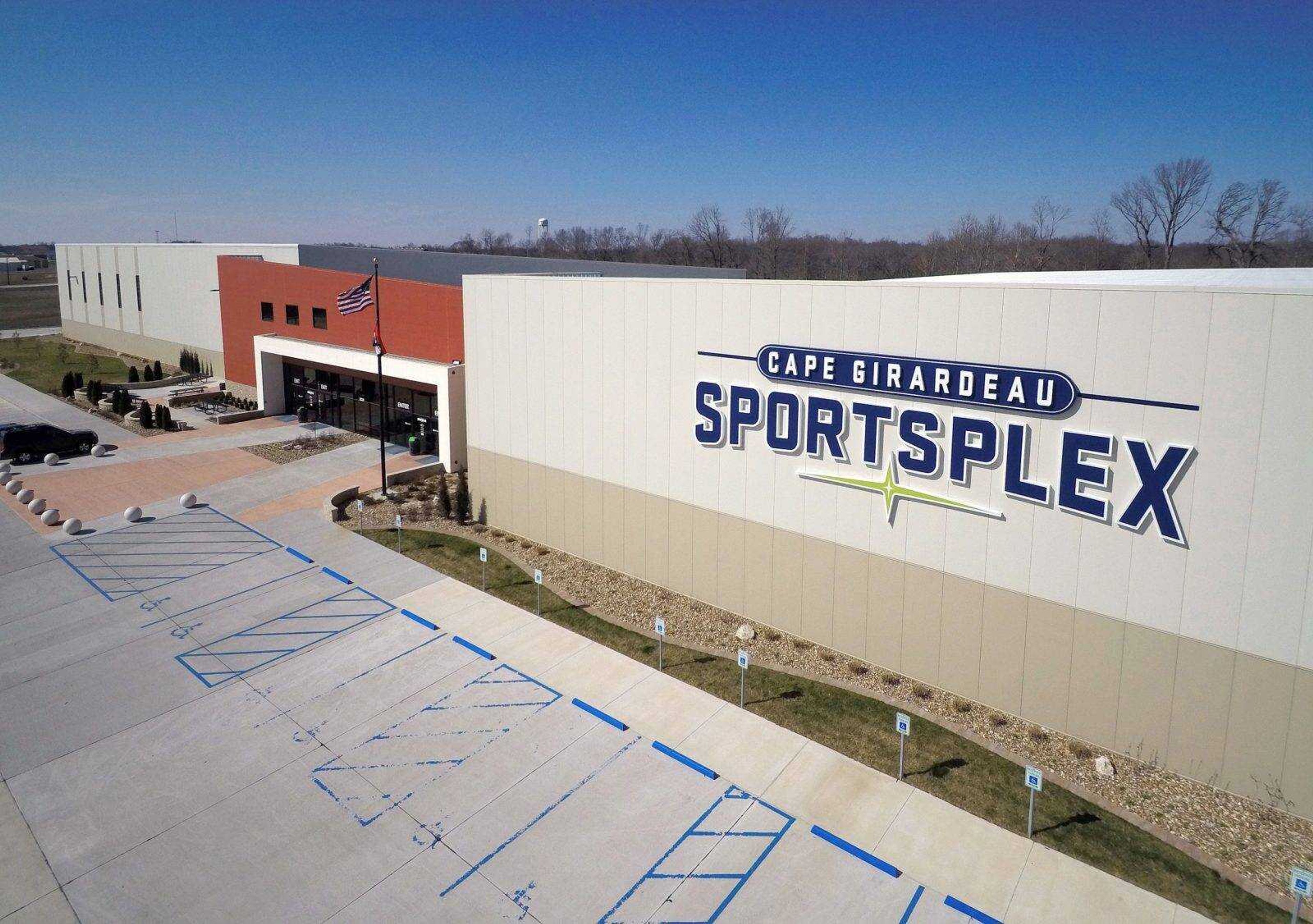The New Economic Warrior
Inside the 121,000 square-foot Cape Girardeau SportsPlex on a Sunday afternoon in April, it�s a whirl of color, energy and sound. Hundreds of girls are playing volleyball, many clad in neon jerseys, hair bows and knee pads. Their talent is impressive. ...
Inside the 121,000 square-foot Cape Girardeau SportsPlex on a Sunday afternoon in April, it�s a whirl of color, energy and sound. Hundreds of girls are playing volleyball, many clad in neon jerseys, hair bows and knee pads. Their talent is impressive. Packed into the bleachers, rooting on the players, are parents and grandparents and siblings. Teams that are waiting for the next games gather around the edges of the bleachers � or in the lobby of the facility. A spike on one court leads to a big cheer from the stands. A great block on another leads to the team high-fiving each other � and more cheering. These are scenes repeated across the massive space on 12 different courts, in bright lights and above gleaming floors. And each of the visitors � the players, their families, the coaches � is spending money in Cape Girardeau.
For this particular tournament, organized by Gateway Region Volleyball, many of the teams drive the 100 miles to Cape Girardeau from St. Louis, staying two nights in local hotels. Others hail from Illinois. The visiting teams with a late game start on the first day might drive into town in the morning and stay one night. Because of the tournament, hotels in the area are sold out. The organizer is expecting the event to grow even bigger in the future.
�It�s a fantastic venue,� said Linus Shyu, event and technical specialist for Gateway. �There�s nothing like it in this area, even St. Louis. You�ve got so many people crammed into one place, the sound, the noise, the cheering, it makes it much more exciting, compared to a traditional local court tournament with eight teams.
�I know the people that are here want to come back,� Shyu said. �They�re going to tell their other coaching friends and they�re going to tell their clubs, �You�ve got to see this facility. You�ve got to come down here.� This week, we rented two additional courts at the university. Next year we will need even more.�
It�s not just volleyball that is drawing visitors to town. Cape Girardeau has long been a popular destination for baseball, softball and soccer tournaments at the soon-to-be-enhanced Shawnee Sports Complex, where Cape has developed a national reputation. Now, indoor events draw competitors for volleyball, basketball, cheerleading, soccer and more at the SportsPlex, which opened just less than a year ago, in May 2017. The Show Me Center, the area�s largest performance hall with a multi-purpose student recreation center adjacent, attracts its own crowds around college and high school sports, including an annual Missouri State High School Activities Association volleyball tournament in the fall, which draws more than 10,000 players and spectators.
Increasingly, travel team tournaments are filling the venues � even crossing into multiple sites � and this is good for local businesses, because travel teams mean more demand for hotel rooms, food, gas and family experiences.
According to Tom Dempsey, director of sales and marketing for Mid America Hotels which owns three hotels in Cape Girardeau, �Sports tournaments have been huge for us. Once school is out, there will be a lot of people just traveling for leisure and that kind of stuff. But this past weekend, we wouldn�t have filled our hotels without the volleyball tournament.�
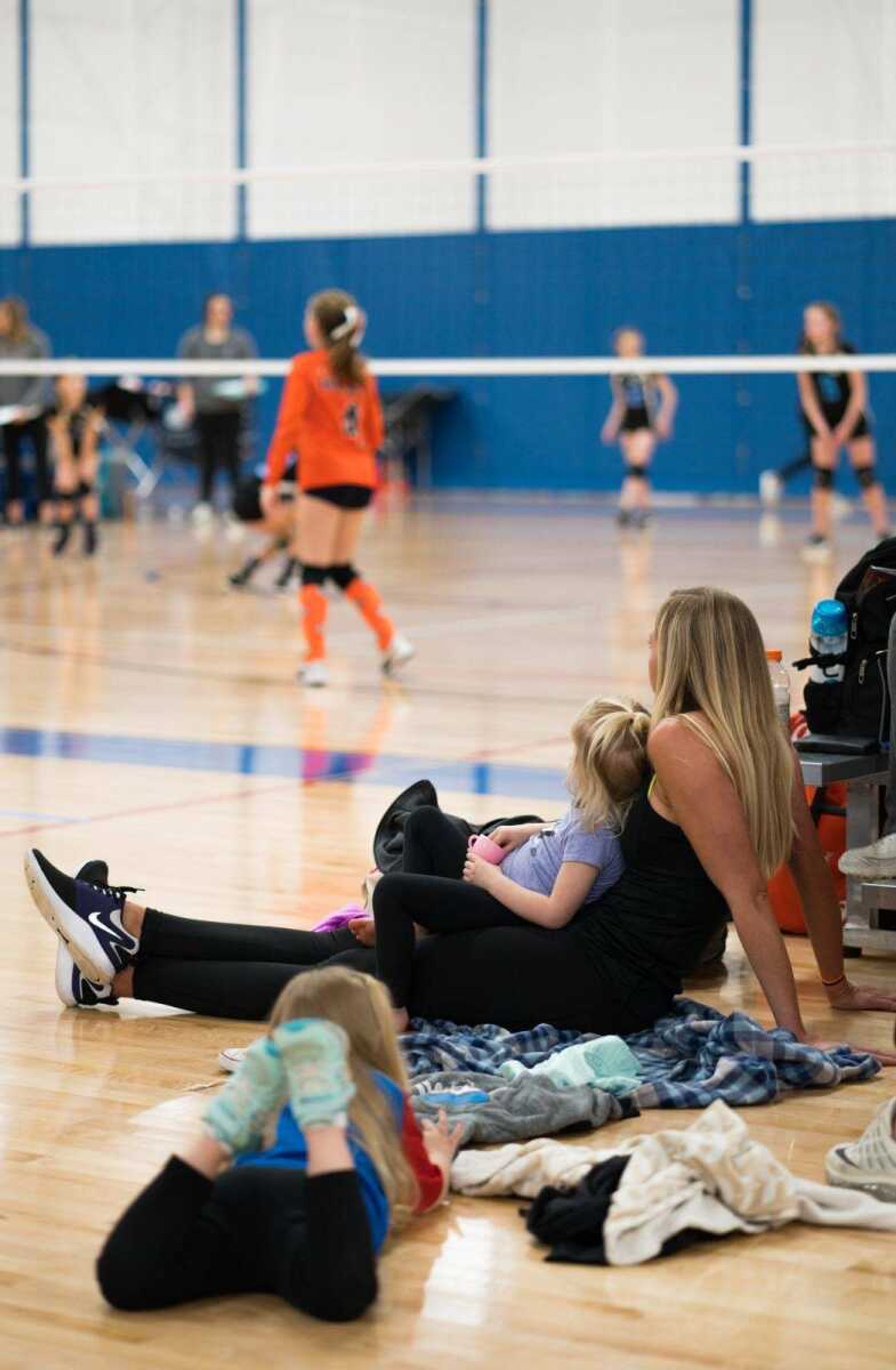
The business of sports
Attracting such events is big business: in a conservative analysis, with 400 room attendees, the Gateway volleyball tournament pumped $76,000 directly, without a multiplier, into the economy. This leads to sales tax revenue, which is turned around to build, operate and maintain more facilities, helping to inject more revenue and ultimately maintaining or improving city services.
This has been an intentional strategy of Cape leadership for several years, says city manager Scott Meyer.
�Staff and council identified that experiential venues are an important target for us as a regional hub, especially as the economy is impacted by new consumers who are more apt to spend money on experiences and shop more online,� Meyer says.
In fiscal year 2017, according to analysis by the Missouri Division of Tourism, total tourism expenditures in Cape Girardeau County exceeded $194 million and accounted for 4,449 jobs. The exact portion of that spend on sports tourism is complicated to assess, but it�s growing.
�Youth sports tourism is basically considered recession-proof,� says John Mehner, president of the Cape Girardeau Area Chamber of Commerce, which oversees the city�s convention and visitors bureau.
Statistics indicate Mehner is right. Nationally, when other tourism categories dropped after 9/11 or the Great Recession of 2007, sports tourism � especially around youth sports � grew. Part of the reason: parents aren�t bashful about spending on their children.
According to a Sportsbusiness Journal interview with Don Schumacher, who retired as executive director of the National Association of Sports Commissions in 2017, �Parents will forgo a regular family vacation to make sure their child and his or her team go as far as possible in league play. Those families spend nights in hotels, fill restaurants and take in the local sights while attending a tournament. As cities and organizers have come to realize that these dollars don�t go away, we�ve seen a shift from nonprofit events to more profit-minded.�
In some areas of the country, parents may spend $20,000 to $30,000 on a single child�s sport in a year, including travel. The numbers aren�t so high in this market, but still, it�s not cheap. St. Louis resident Courtney Cox, who brought her mom to watch her daughter compete in the Gateway tournament at the SportsPlex, estimated most parents on their team spend $1,500 to $2,500 in club fees, uniforms, equipment and tournament registrations per year per child, not including food and travel. During the season, she said they compete in eight to nine tournaments. She was smitten with Cape.
�I�m so impressed with the place. Because we had an 8 a.m. game, we came on Friday night. The whole team stayed at Auburn Place, which has a really great setup for families,� Cox says. Besides eating out at a wings restaurant and ordering pizza into the hotel another night, the whole team also watched a movie at the recently refurbished, luxury multi-cinema just a couple of minutes away from the hotel.
Regarding the SportsPlex itself, Cox says, �I love the facility. It�s huge. It�s nice. What�s not to like about it?� Cox says they travel to tournaments in Chicago and Indiana, but �Cape�s the best tournament we�ve ever been at.�
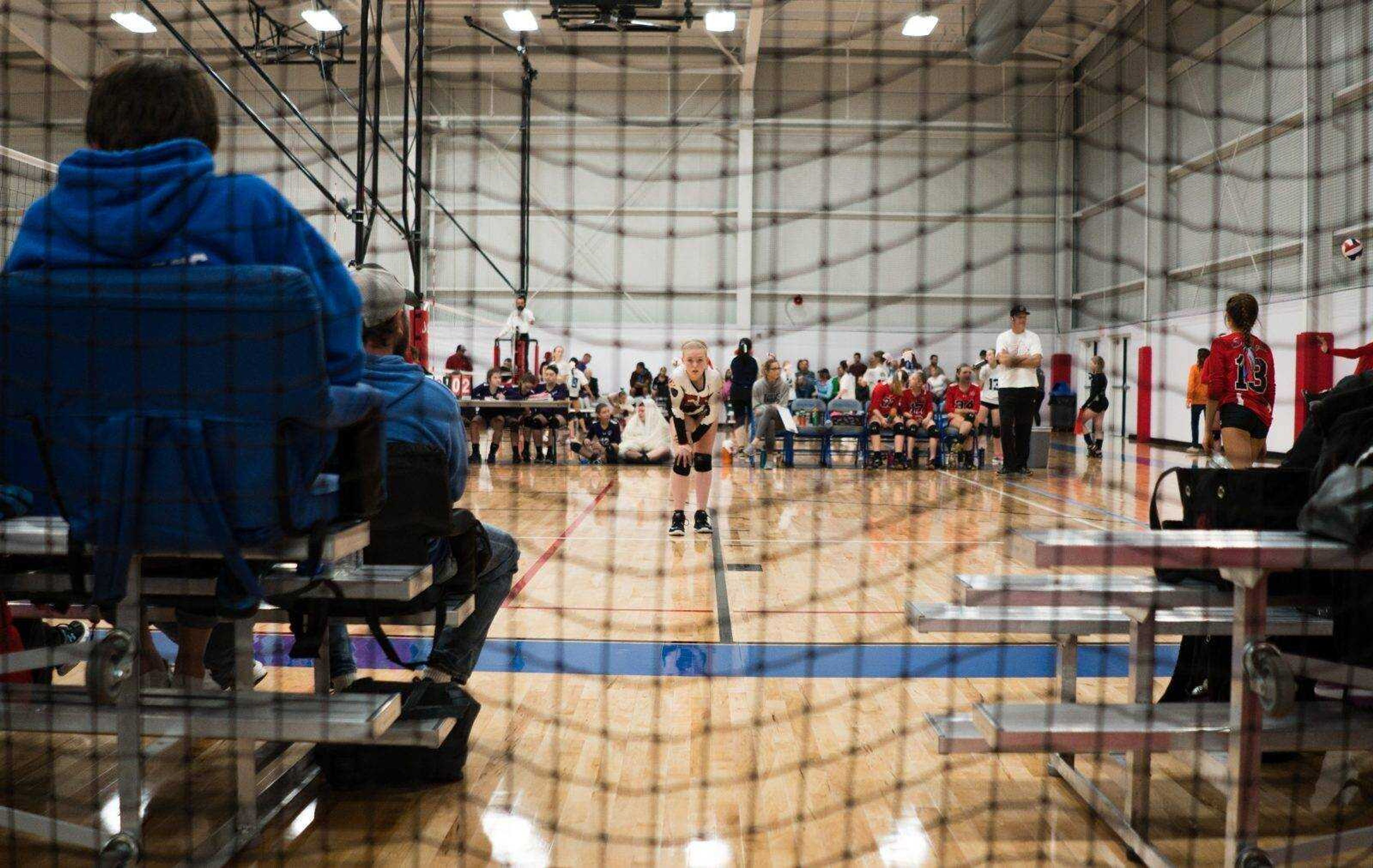
The youth sports economy
A TIME magazine story from September 2017, �How Kids� Sports Became a $15 Billion Industry,� identified that the U.S. youth-sports economy � which includes everything from travel to private coaching to apps that organize leagues and livestream games � is now a $15.3 billion market.
�And the pot is rapidly getting bigger,� TIME reports. �According to figures at WinterGreen Research, a private firm that tracks the industry, provided exclusively to TIME, the nation�s youth sports industry has grown by 55 percent since 2010. The numbers have been catnip for investors � and municipalities that once vied for minor-league teams are now banking on youth sports to boost local economies, issuing bonds for lavish complexes that they hope will lure glove-toting tykes and their families.�
City manager Meyer told the Southeast Missourian newspaper in the run-up to a recent ballot issue to fund parks and sports facility improvements, �It used to be people came here just to shop. Now they come for sporting events and conferences, and shop while they�re here.�
The tax vote passed April 3 with 81 percent of the vote. Of the $58 million estimated to be raised over the next 15 years, $27 million will go to parks and recreation; about $10 million for stormwater infrastructure projects. Roughly $21 million will go toward maintenance and operations associated with both parks and stormwater. The biggest project: a new aquatic center, though partners with the city will be necessary to build it at a size conducive to serious travel competitions.
In the case of Cape Girardeau, the plan appears to be working. Cox, the mother from St. Louis, explains why. �It�s about the experience. The kids grow up playing CYC [Catholic Youth Council Sports], churches against churches. With travel teams, it�s more competitive. It�s fun. And there�s a lot of team bonding.
�It�s a whole new world of sports competition,� Cox continues. �If you�re not involved, you just don�t know. And parents spend money on their kids.�
Shyu, who understands venue design, is particularly impressed by what Cape Girardeau has created with the SportsPlex.
�We�re one of 40 regional volleyball associations dotted across the U.S.,� Shyu says, �and we take feedback from our tournaments. This facility has been designed at the highest level of our profession. The lighting, the spacing, the netting, the safety. It�s great for the bleacher spectators.
�People in St. Louis wish they could build something like this,� Shyu says. �When you build something from scratch, it�s ideal. This facility is so well designed for so many different sports, it�s obvious to me that expert thinking was taken into account.�
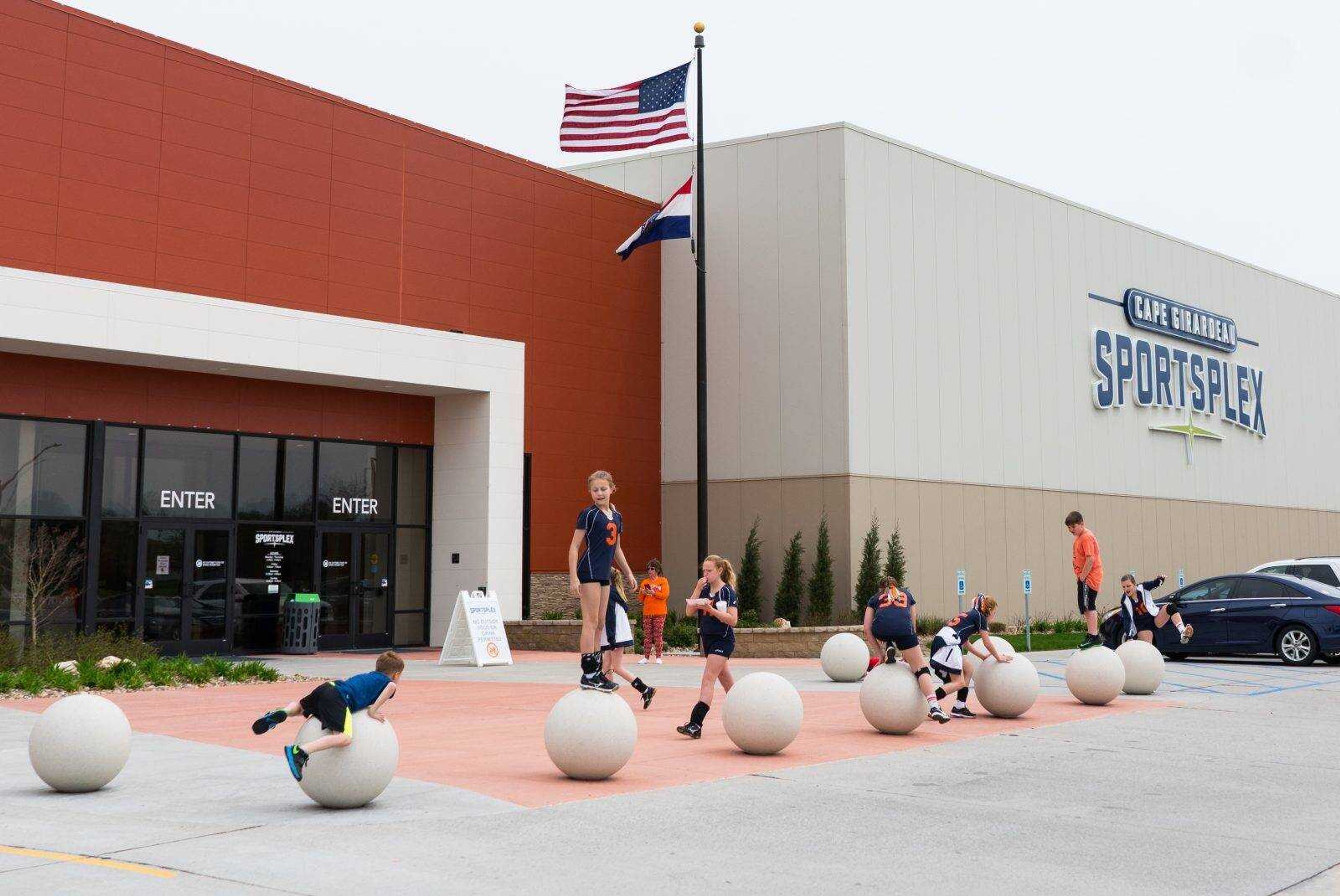
Situated for success
Cape Girardeau, of course, is not alone in building first-class tournament sports facilities. In fact, compared to some of the �megacilities� being developed around metro areas, Cape�s offerings could be deemed tame. Although if you count all the high quality venues available for tournaments in the city from Shawnee to Houck, the Show Me Center to Osage, Stuber Field to Arena, the breadth of quality offerings is among the best in the Midwest. More importantly, Cape has placed itself in the center of a very important niche.
In many metro areas, attracting major tournaments is often dog-eat-dog, necessitating the payment of big incentives to tournament organizers and high prices for venue amenities.
�It�s kind of like when cities bid for the Super Bowl, but obviously on a much smaller scale,� says Michael Grade, senior vice president of sports operations for a major sports destination outside Atlanta, who was interviewed by Athletic Business.
Paying bids has not been a factor in Cape�s success, however, in large part because of location. Alyssa Phares, who helps market Cape Girardeau to tournament organizers as director of sales at the city-funded Visit Cape, says national tournaments usually require bid money. One that was considered, until the price tag was understood, started at $20,000.
�We just can�t meet that,� Phares said. One national tournament that did schedule at the SportsPlex, Adidas March Madness, generated 450 hotel room nights, according to event founder Sam Swinford, CEO of AthElite Sports Management, and drew competitors from over 10 states. The CVB provided an incentive of $1,500 to AthElite.
Instead, Cape�s sweet spot is regional youth sports, which is not bid-dependent � and for that, the city is particularly well-positioned between St. Louis, Memphis, Louisville, Indiana, Chicago, Arkansas and Nashville.
The biggest draw, though, is from St. Charles and St. Louis.
�For so many places, we�re an easy drive,� Phares says. �We�re family-friendly and we�re affordable. You can get anywhere in town in 15 minutes or less. I have people who come up to me and rave about how little Cape Splash costs compared to what they�re used to, and they can take their whole family there during a tournament and not have to break the bank. We also have a good range of room rates, and with the Marriott opening late summer, pretty much all the major hotel awards programs, which is important to these families who travel a lot.�
Shyu reinforces why Cape�s location and venue is particularly attractive to his group � and many of the traveling teams in St. Louis.
�Other volleyball regions have multiple metropolitan areas that can do local tournaments. So on one weekend you�ll play in this city, next weekend you�ll play in another city and the third week someplace else. All of them are within two or three hours of each other,� Shyu says. �Our region doesn�t have that luxury in terms of having several large metropolitan areas. Roughly half our teams are from St. Louis, the other half from outlying, rural areas.
�Because the center of most of the player population congregates around the St. Louis area, we traditionally throw our larger tournaments there,� Shyu says. �But it�s challenging to organize. You know the number of courts you need for the number of teams that would like to play, but there�s not a place with 12 courts all under one roof. In St. Louis, you have to rely on local high schools, but then you�re competing for availability with winter and spring sports.�
The much higher cost incurred by teams and parents for tournaments in metro areas is also a major advantage for Cape Girardeau.
Traveling teams want the �one roof� experience, Shyu says. They want the travel experience, the night in a hotel, competition against other teams they don�t regularly face, the bonding with friends and family. But because a lot of his teams are rural, �they don�t want to spend the obscene amounts of money it takes for some of the large, national qualifiers,� he says.
According to Shyu, registration at a national qualifier is anywhere between $600 and $700. �The cost of a hotel at one of these metropolitan areas depends on where you stay. If you stay really far away from the venue it might cost $130-$150 a night, and then you have to pay for parking at the venue, which might be $30 per day or more. If you stay in downtown, within walking distance, it could be $200 to $250 for a hotel room. At these centers, it�s $6 for a bottle of soda, $10 for an individual slice of pizza. So the money stacks up very quickly,� Shyu says.
Costs at the Cape SportsPlex are more reasonable to visitors. According to Heather Davis, facility manager, parking is free. A whole pizza can be bought for $7.50, and a slice for $3.50. Combo meals, which include fries and a drink, range from $4.75 for a turkey sandwich to $6 for chicken strips or cheeseburger.
�We want families to eat out when they visit, and surveys indicate that the restaurants nearest the hotels do the best: Olive Garden, Texas Roadhouse, Chick-fil-A, Golden Corral. And Subway, because it�s closest to us,� Davis says. �But it�s important we keep the concession prices reasonable, because we also service the local market here.�
Julia Thompson-Jones, director of parks and recreation for the City of Cape Girardeau, underlines the push-and-pull on pricing at the SportsPlex.
�Our goal is by year five to be able to cover all the operational costs. We are hopefully going to make it sooner,� Thompson-Jones says. She explains they�ve already identified areas where costs can be backed down from what was originally budgeted.
Revenue, meanwhile, continues to grow.
�And then if you count the economic impact, we�re way ahead of schedule,� Thompson-Jones says. �But this market is a tough market to make money because of the demographics, and we have a lot of price sensitivity here. The people who come from out of town are astounded our concession pricing is so affordable, they wouldn�t blink an eye at much higher prices. But we�re not a big city, and we pride ourselves on trying to keep things affordable to our local market.�
Davis presented numbers to the Cape Girardeau City Council in December, saying she expected the SportsPlex to generate $475,000 for the first full fiscal year, which ends in June. Expenses, according to Davis, are on pace to total about $650,0000. In the coming year, as many as 34 weekends could be booked for tournaments, she says. The goal is to get that total up to 37 weekends.
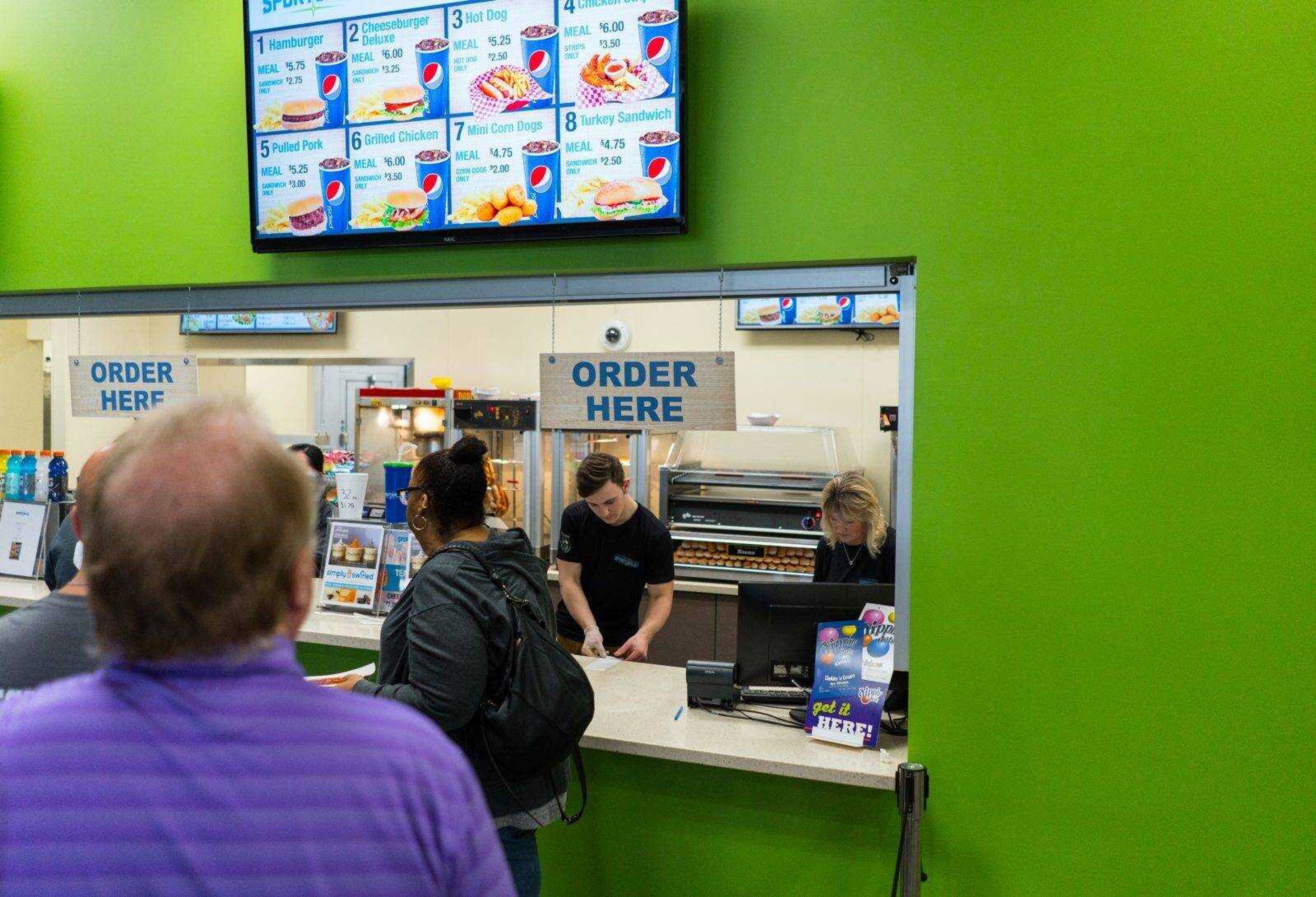
Keeping it local
Part of the challenge for Cape Girardeau is balancing the use of its facilities for in-market and travel-oriented events. So far, it hasn�t been a difficult balance to make. For example, most of the tournaments at the SportsPlex take place on Saturdays and Sundays, so community sports activities can be scheduled regularly on Friday nights and throughout the week.
According to Thompson-Jones, more of that community scheduling is being done, now that they have a better understanding of tournament needs. Other sporting events have been moved to the SportsPlex from Osage and Shawnee community centers, which opens those venues for more community events.
Moreover, local sports coaches who run their own travel teams, along with parents of the players, are saving considerable money by not having to travel as much to face top competition. Instead of Cape-based and other local teams going on the road with all the hotel and other expenses involved to compete in other markets, other teams now come to them. This saves local families money and time.
�We know that sports involves families,� Thompson-Jones says. �We know that sports keep both parents and children fitter, and that�s actually the underlying role that we play as parks and recreation. We need the business part, it�s necessary to run our programs and be fiscally responsible. But the satisfaction of providing good services to our citizens and visitors is that we know that we�re contributing to the quality of our community and to the quality of our young people. Through sports, they have the ability to build character. They understand what competition is about. We try to emphasize it�s not always about winning. So for us, it�s all about how do we make it the best experience possible.�
Casey Skelton brought his daughter to the Gateway tournament at the SportsPlex from Creve Coeur. They travel �all around the area, but this is our only overnight tournament,� he says.
The reason they�re involved in travel sports is to keep his daughter �active.�
�It�s a step up in competition from local leagues,� Skelton says. �And in her eyes, it�s a step towards competing in high school volleyball. I�m not thinking she will play in college, but she likes the girls, the experience. And��
�It�s a lot of fun,� his daughter chimes in.
�And as long as it�s fun,� Skelton says, �We�ll keep doing it.�
~Jon K. Rust is publisher of the Southeast Missourian and co-president of Rust Communications. He is a special contributor to B Magazine.
Connect with the Southeast Missourian Newsroom:
For corrections to this story or other insights for the editor, click here. To submit a letter to the editor, click here. To learn about the Southeast Missourian’s AI Policy, click here.

